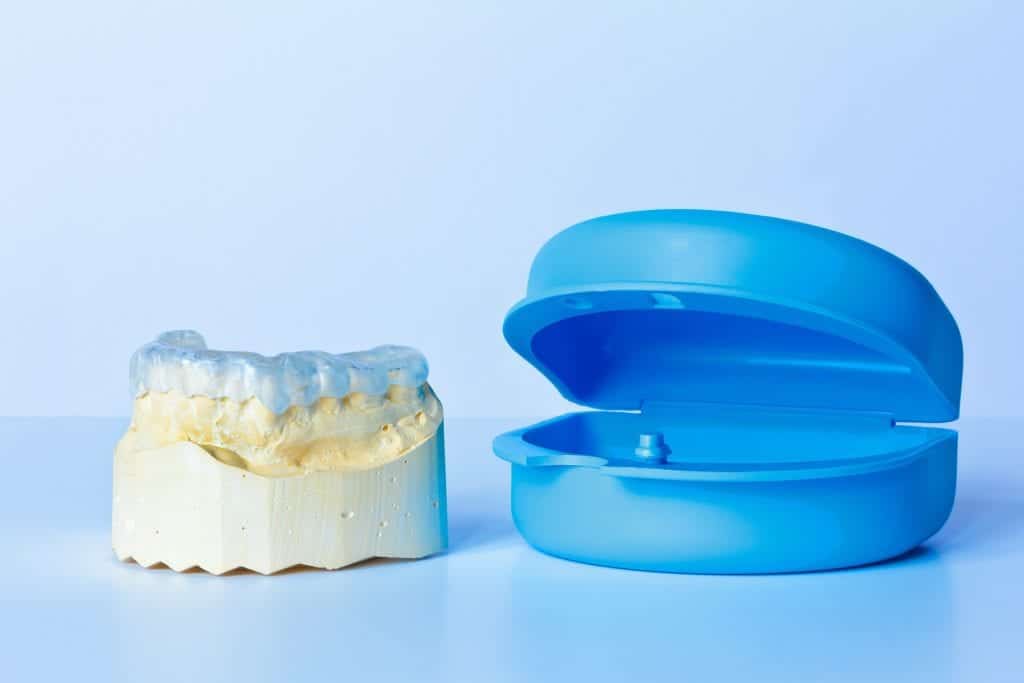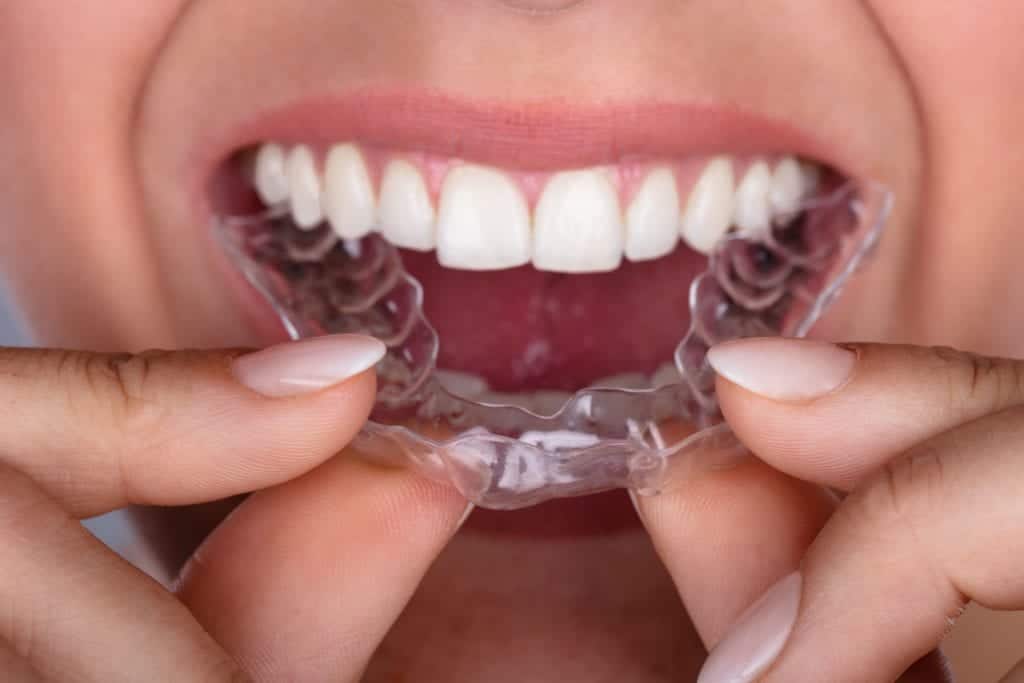Did you know that your teeth can affect the way you sleep? Specifically, what your teeth do at night when you are sleeping. Bruxism is the term used to describe the involuntary grinding or clenching together of the teeth while asleep. Currently, the National Sleep Foundation estimates that about 8% of American adults are affected by bruxism.
In addition to being detrimental to the quality of your sleep, bruxism can also cause headaches, ear aches, sore facial muscles, jaw pain, damaged teeth, and temporomandibular joint disorder (TMD). For these reasons, those who grind or clench their teeth are encouraged by their dentist to stop. However since bruxism is often involuntary, stopping is easier said than done. Luckily, your dentist has a few strategies to help you stop grinding or clenching your teeth.

Night Guard
This is by far the most popular dental treatment for bruxism. Night guards are acrylic casts that fit over a single arch of teeth. Some dentists place them on the upper arch, while others may place them on the lower arch. Night guards work to prevent the mouth from closing tight, and therefore decrease the force of teeth grinding and clenching, as well as protects the teeth from damage. This position also reduces the strain on the jaw joint so that the jaw muscle can rest. Like their name suggests, they are only worn at night and are removable.
If your dentist recommends a bruxism night guard, they will need to take a dental impression of your mouth. During a dental impression, the impression putty will gradually harden around your teeth to form a mold of either the upper or lower arch. This mold will then be used by a dental lab to fabricate a night guard that will fit perfectly over your teeth.
While many companies offer “do it yourself” night guards that consist of using the boil and bite method, these night guards unfortunately do not offer the same fit. This can make them uncomfortable to wear, can decrease their effectiveness, and can even cause symptoms to worsen. Therefore, it is recommended that you use a customized night guard fabricated by a dental lab to stop bruxism.

Invisalign
Some cases of bruxism can be caused or exaggerated by teeth that are crooked, misaligned, or overcrowded. In these cases, your dentist will likely recommend orthodontic treatment to correct the bite alignment and move your teeth into a better position. Invisalign is a popular orthodontic treatment that uses clear aligners to gradually move your teeth and align your bite. These aligners can be removed for meals, but must be worn a minimum of 20-22 hours a day to be effective.
Decrease Stress
Although the exact cause of bruxism is not known, stress has been identified as a major contributing factor. Therefore, in addition to prescribing a night guard, your dentist will also encourage you to identify possible stressors in your life. They may also suggest that you visit a therapist or counselor to learn how to better manage or decrease your stress levels before bedtime. Learning how to manage or decrease daytime stress decreases the emotional tension that inevitably leads to physical tension.
If you want to stop bruxism, these are three strategies your dentist may recommend. In most cases, your dentist will start by suggesting a night guard and stress management. Some other cases, may require orthodontic or other treatment to address a specific cause. Ultimately, the best way to stop bruxism is to visit your local dentist office.

Dr. Dennis Laurich has been practicing dentistry for over 40 years. He received his DDS degree from the University of Michigan Dental School and regularly attends oral health care conventions to continue his dental education. This allows him to treat patients with the leading dental technology and methodologies. Additionally, he is a member of the American Dental Association, Michigan Dental Association, and the Detroit District Dental Society.
Dr. Dale Flanagin II is a distinguished professional in the field of dentistry, holding a Bachelor’s degree in Molecular Biology and Biotechnology as well as a Doctor of Dental Surgery degree. He is committed to improving the lives of others through his work, driven by a lifelong passion for helping people.





